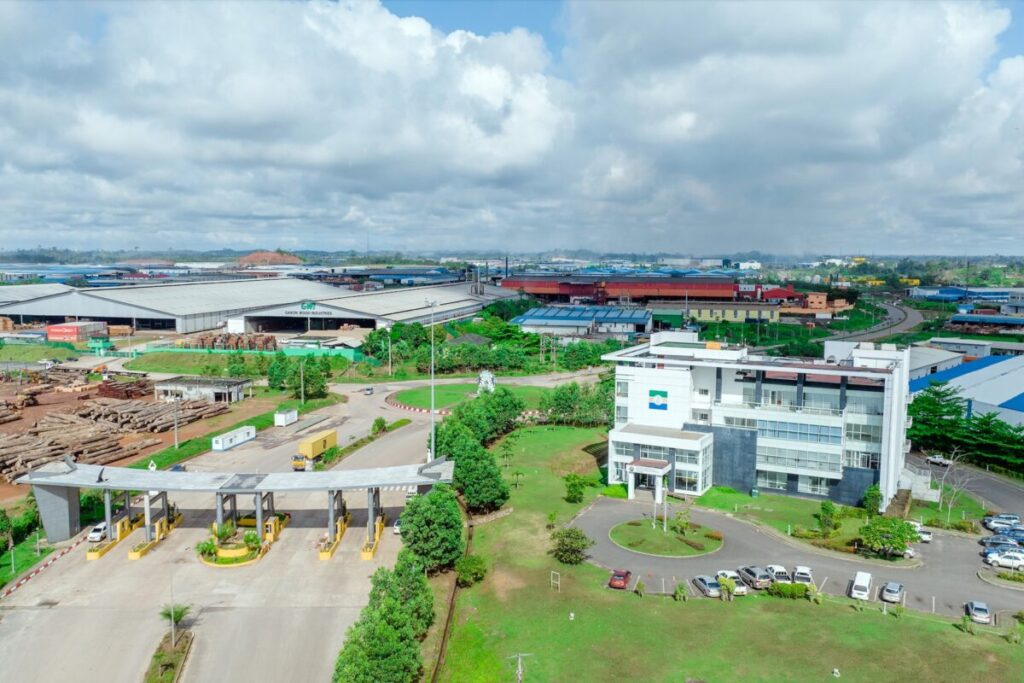Military leaders who seized power in Gabon have named the head of the presidential guard, Brice Oligui Nguema, the country’s interim leader.
The coup occurred yesterday after the West African state’s election body announced President Ali Bongo’s re-election – the eighth coup in the past three years.
Much of the reporting over the past 24 hours has centred on the impact on global supplies of oil and minerals – with Gabon the second largest supplier of manganese.
South Africa is the largest supplier of the mineral, Australia is third, and China is fourth.

Gabon, a former French Colony, is working with Eramet, who has invested heavily in expanding manganese output. Manganese, a key ingredient in steelmaking, is also finding growing usage in electric-vehicle batteries.
Beyond its mineral wealth, Wood Central can reveal that the state is a major regional player in processed forest exports.
Over 88% of the country is covered in a tropical rainforest – which has given rise to the country’s second-highest export – timber.
By forest area, this makes Gabon the second most forested country on earth, according to former Minister of Forests Lee White, who spoke to CNN in 2019.
The country manufactures and exports thinly sliced veneer overproduced wood to give furniture, cabinets and flooring a polished look.
In 2010, Gabon banned exports of raw logs to encourage local wood processing, which would add value to exports and increase revenue. The decision to ban export logs led to the establishing of the Special Investment Zone (SIZ), a harvesting zone 27 kilometres from Libreville’s capital.
According to the UK-based Timber Trade Portal, over 40% of timber product exports end up in China, with 30% of processed exports ending up in the EU.
In recent years Gabon has substituted European trading partners with China – making the country one of Africa’s most important destinations for the Chinese forestry sector.
In a 2021 report, Forest Trends reported that “timber sourced from Gabon is used in Chinese, Vietnamese and Indian-manufactured products that are likely entering European and US markets.”
Pre-Covid, Gabon produced 801,000 cubic metres of sawn wood (82% for export), 271,000 cubic metres of veneer (47% for export), 64,000 cubic metres of plywood (50% for export) and 2,320 cubic metres of logs (less than 2% for export).
Forest authorities in Gabon use the TraCer monitoring system to ensure the legality and traceability of the supply of logs to the SIZ.
Since October 2021, the EU has recognised TraCer as compliant with the EU Timber Regulation (EUTR). This allows TraCer to issue certificates to European importers, guaranteeing the timber leaving the SIZ complies with EU criteria.
According to Mohit Agrawal, director-general of the Nkok SIZ, the SIZ has helped protect and preserve 41 million hectares of Gabon forests.
“To ensure the preservation of our forests, we have been allocated logging concessions, which have quotas imposed on them.”
“This allows the forest to regenerate and grow,” Mr Agrawal told Mongabay in May 2023.
Twelve years after its establishment, the SIZ has brought together 144 companies, 84 dedicated to wood processing and has generated thousands of jobs.

In 2019, Gabon produced 500 million euros of timber exports, and White told CNN that it “has a vision to reach five billion euros over the next six years.”
In 2004, Gabon became the first African country to embrace forest certification and join the PEFC alliance. In March 2021, Gabon developed a new standard that the FSC recognised – making it one of the first countries in Africa to have dual certifications for both schemes.
The push towards sustainability is part of Gabon’s push to preserve its rainforests. In September 2019, Gabon received US $150 million in international funds to protect its rainforests. Under the funding, Gabon will reduce greenhouse gas emissions and battle deforestation.
Wood Central understands that the coup will not impact forest trade but notes that Forest Trends’ latest IDAT score places Gabon at ‘High Risk’ (86.9) ahead of the Wagner-controlled Central African Republic (85.6).
The Forest Trends Illegal Logging and Associated Trade Index (IDAT) calculates the risk of illegal logging in the country. The lowest country on the rating is New Zealand (1.8), followed by Norway (2.2) and Denmark (2.4). Australia is 9th (4.1) out of 213 countries. Yemen (98.7), South Sudan (99.0) and Somalia (99.6) are considered the countries with the highest risk of illegal logging activity.






